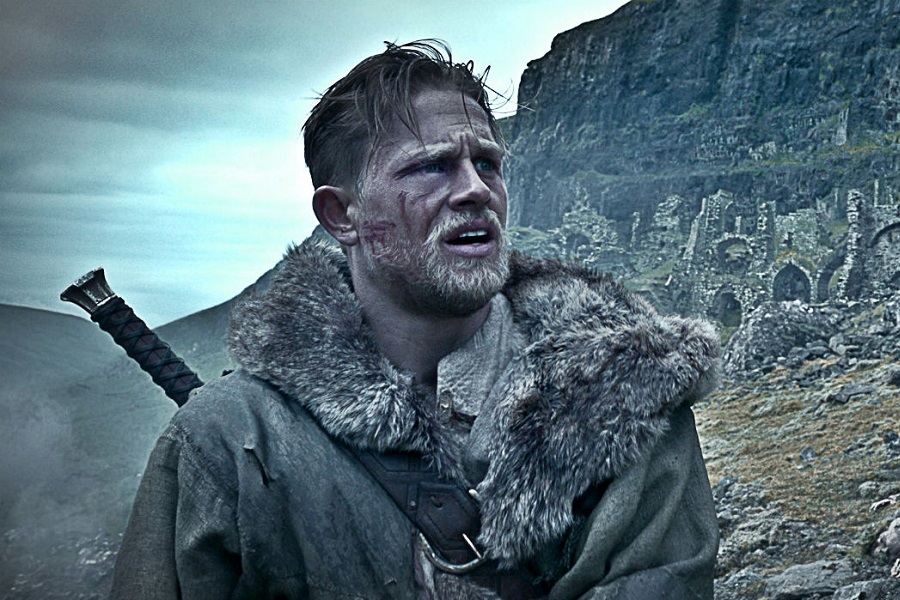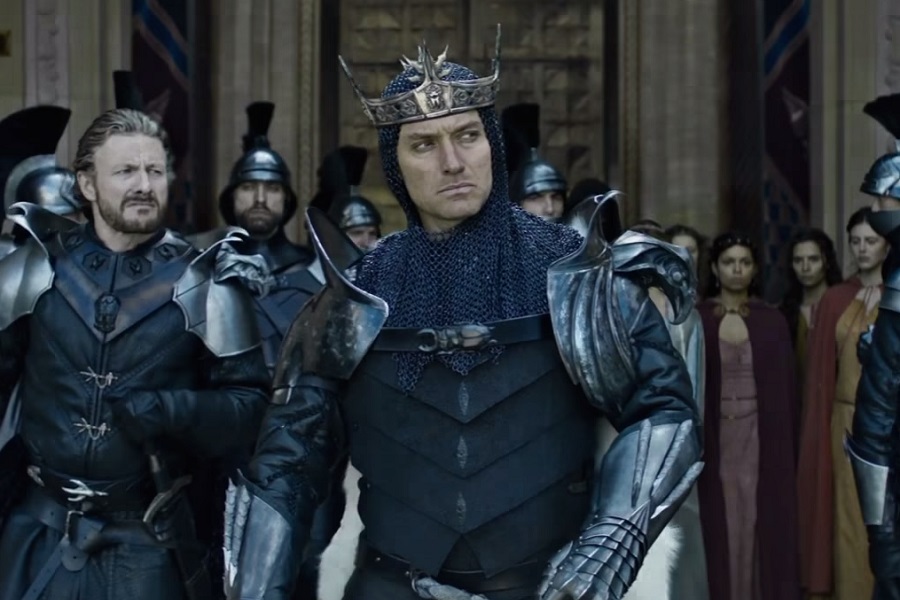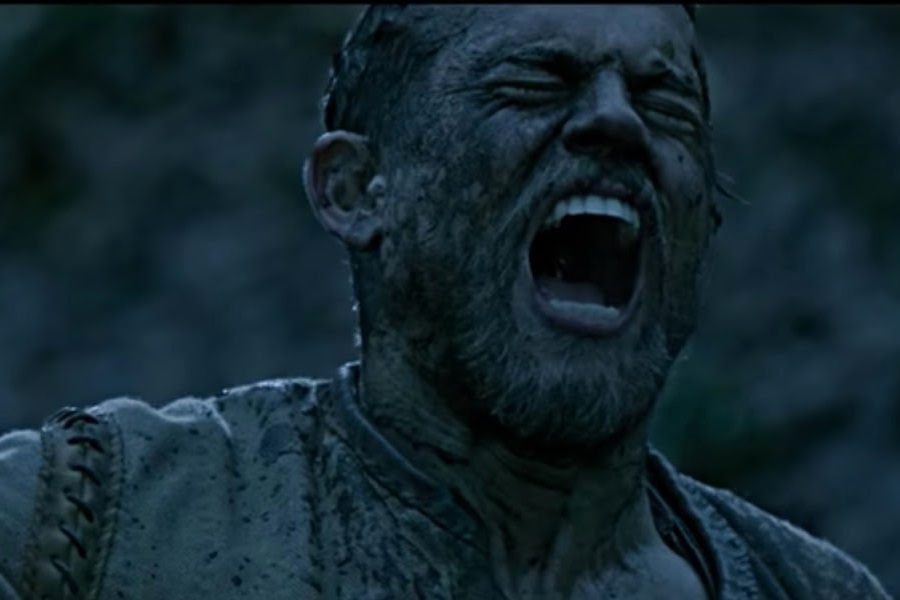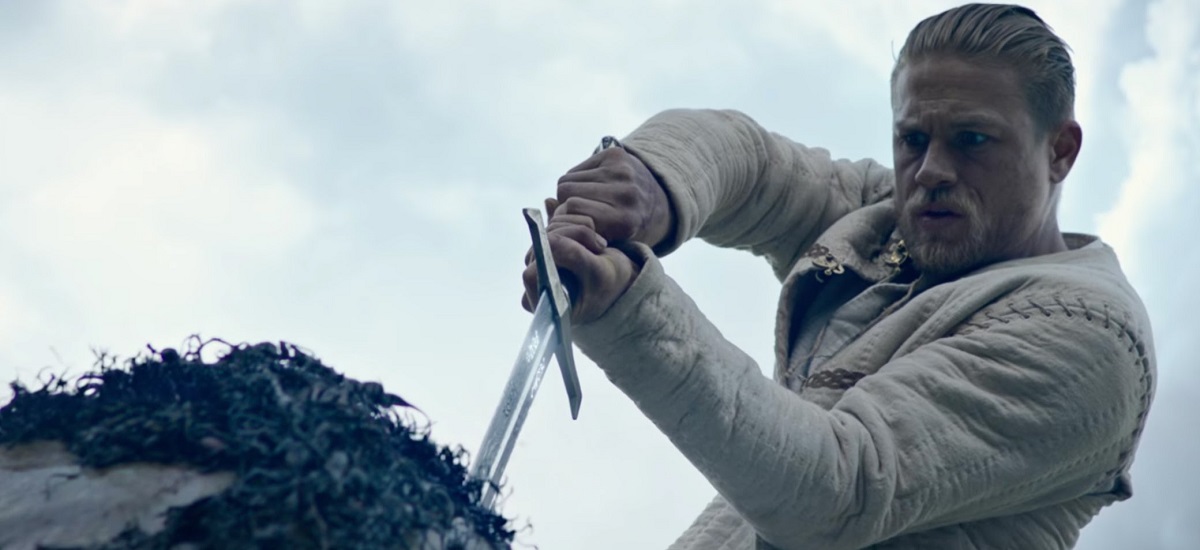The majority of people have heard tell of King Arthur, his knights of the round table and the sword, Excalibur. Countless stories litter the centuries in one format or another and more than a fair share of them happen to be of the cinematic variety. There have been a few animated films, a campy R-rated adventure, a musical and even one of the most beloved comedies of all time. Hell, they even made a go from the historical slant. In King Arthur: Legend of the Sword, Guy Ritchie attempts to put his own singular spin on the legend. As nonsensical and exciting as that idea may have been, it pales in comparison to the finished product.

© Warner Bros.
A quick scrawl of text explains that Man and Mage had coexisted peacefully for eons, until the rise of Mordred. If warning signs are already starting to flash, know this: the following strays from every variation that’s come before. Strangely enough, as disconcerting as it feels, the opening comes across as the most rousing and coherent set-piece. Uther (Eric Bana) manges to vanquish evil but in turn is usurped by his brother Vortigern (a sniveling Jude Law, asked to hold back too often). With his dying breath, he manages to push young Arthur down river. Luckily, he washes up in Londinium, where he gets raised by prostitutes, until he can grow up to become Charlie Hunnam.With any number of these fantasy reboots, the best hope is for the film to be so ludicrous or audacious as to become charming, or at least delve head first into camp. King Arthur doesn’t have such lofty aspirations, because to do so would be to involve effort, patience, or at the very least some form of drive. Unfortunately, Guy Ritchie forgets the age old rule of “show, don’t tell”. He technically skirts the edge more often than not by having a character narrate the montage that is taking place, whilst cutting back physically to show the person talking. Insisting that this is the only course for your story borders on preposterous. Were it to happen a couple of times, it would just be grating, but forgivable. When it happens close to a dozen times, it feels cruel.

A good portion of the inertness can be dropped at Charlie Hunnam’s feet. His Arthur is just swagger and bravado (and sweaty nightmares). Built to be the pinnacle of masculinity, he is the best fighter in his town, the best side-dealing businessman in town and the bouncer at a brothel. When it comes time for him to claim Excalibur, he does so just so he doesn’t have to wait in line all day. Of course, once he has said sword and sees the weight that comes with it, he backs down immediately. Yes, on top of everything else, King Arthur adheres to the ancient “a hero’s call.”While not actually that old, the notion that a 2017 early summer blockbuster would adhere to Joseph Campbell’s template is not only disappointing, but speaks to the lazy nature of the script. Action sequences are rendered incomprehensible due to quick cuts and camera techniques. Once Arthur does harness the power of Excalibur they become a jumble of CGI flashes that would feel more at home in a video game.
Aimless, meandering, overwrought, it continually shambles through the motions. Around 80 minutes into the film an explanation is given for this variation of “the sword in the stone” that is so idiotic it becomes majestic or almost joyful. That it should get an explanation, but how magic possibly works doesn’t , speaks to the lack of interest that purmeates the proceedings.

Astrid Berges-Frisbey is one of four females to be featured in the film (only two of whom get names), but she is only referred to as “The Mage” by both characters and credits alike. She does manage to get a decent amount of screen time thankfully, though is never called upon to upstage her costars for too long. Yet, the magic that surrounds her suggests that a far, far better movie was lost deep within rewrites.A thought formed while watching the movie: “could this story or film be saved, were it to completely excise the tier to Arthurian legend?” Probably not, as it would end up no better than the likes of Seventh Son, Season of the Witch or Snow White and the Huntsman. While categorized as a fantasy adventure, each scene fumbles to embrace the nature of the world around it. Magic and mythical creatures are relegated to the wings, only occasionally allowed to pop up here or there for tonal disconnect.
There is the easy desire to say the only real culprit behind King Arthur‘s misfortune is Warner Brothers itself. While no one could ever be able to pinpoint exactly how their hands were in the pie, this feels run of the mill for them, judging by the last few years. At the same time, that lets Guy Ritchie and company off the hook to easily. This is a disastrously jam-packed film, filled with indecipherable action and narrative plot holes the size of Londinium itself. To rephrase an old joke: “on second thought, let us not go to see King Arthur, it is a boring film.”


